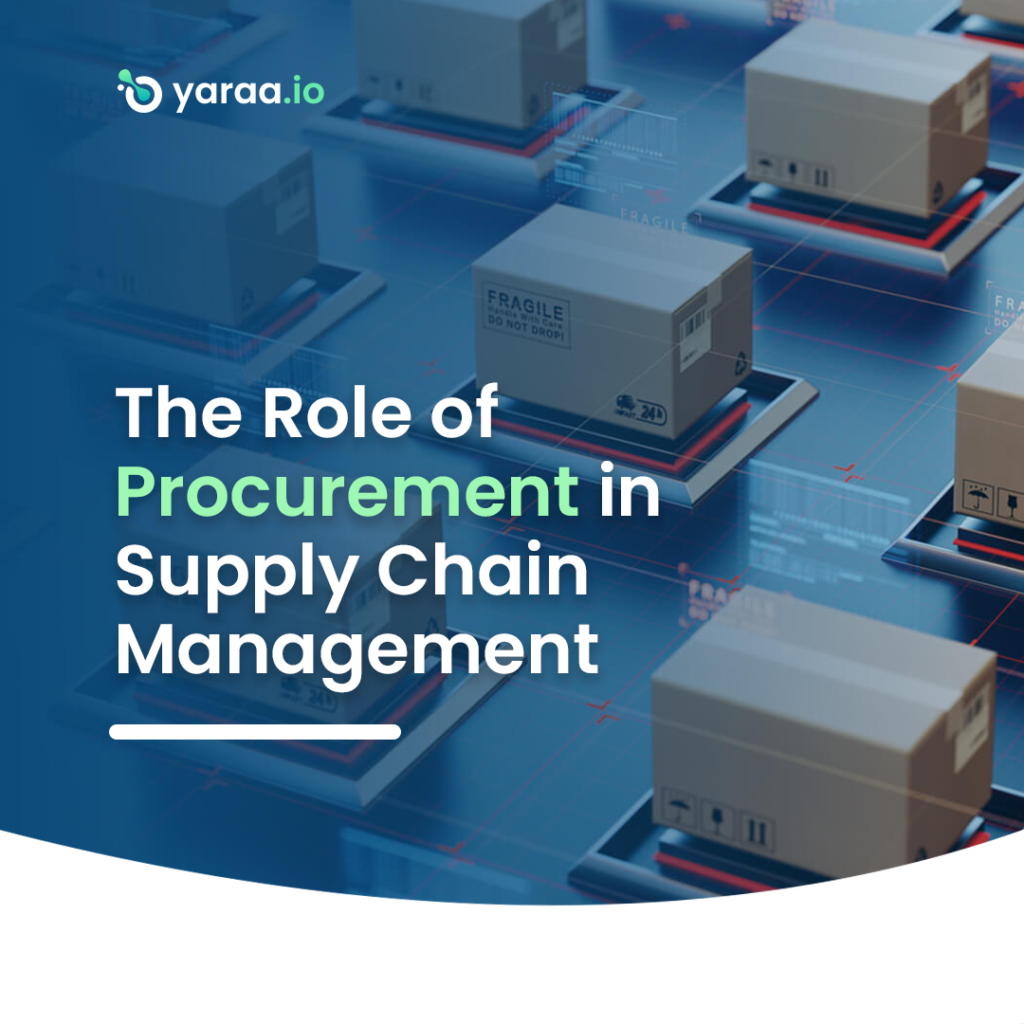Supply chain management is an essential function for any business that wants to operate efficiently and effectively. It involves managing the entire flow of goods and services, from the acquisition of raw materials to the delivery of finished products to customers.
One of the key components of supply chain management is procurement, which involves sourcing, negotiating, and purchasing the goods and services that are necessary to keep the supply chain running smoothly. In this blog post, we will explore the role of procurement in supply chain management and discuss some of the key strategies and best practices for successful procurement.
What is Procurement?
Procurement is the process of acquiring goods and services from external sources. It involves identifying the right suppliers, negotiating contracts, and managing the ongoing relationship with those suppliers to ensure that they deliver high-quality goods and services on time and at a reasonable cost. Procurement is essential for any business that wants to operate efficiently and effectively, as it ensures that the right goods and services are available when needed, at the right price and quality.
Also read: 5 COMMON PROCUREMENT MISTAKES AND HOW TO SOLVE THEM
The Role of Procurement in Supply Chain Management
Procurement plays a critical role in supply chain management because it is responsible for sourcing the materials and services that are necessary to keep the supply chain running smoothly. Without procurement, businesses would be unable to acquire the raw materials, components, and finished goods necessary to produce and deliver their products. Procurement also plays a key role in managing costs and mitigating risks associated with supply chain disruptions, such as shortages, delays, or quality issues.
Effective procurement is essential for achieving supply chain objectives such as reducing costs, improving quality, increasing efficiency, and enhancing customer satisfaction. Procurement is responsible for managing supplier relationships, negotiating contracts, and monitoring supplier performance to ensure that suppliers meet the company’s expectations. Procurement also plays a key role in ensuring that the right goods and services are available at the right time, in the right quantity, and at the right cost, to support the production and delivery of goods and services.

Procurement Strategies for Successful Supply Chain Management
Successful procurement requires a well-defined strategy that aligns with the overall supply chain objectives and goals of the business.
The following are some key strategies that businesses can use to optimize their procurement processes and achieve better supply chain outcomes.
1. Develop a Procurement Plan
A procurement plan outlines the sourcing and procurement strategies that a business will use to acquire the goods and services it needs to operate. The plan should align with the company’s overall supply chain objectives and goals and should take into account factors such as budget, timelines, and risk mitigation strategies. Developing a procurement plan can help businesses streamline their procurement processes and ensure that they are acquiring the right goods and services at the right time and cost.
2. Build Strong Supplier Relationships
Building strong relationships with suppliers is essential for successful procurement. Good supplier relationships can help businesses negotiate better prices, access better quality goods and services, and mitigate risks associated with supply chain disruptions. To build strong supplier relationships, businesses should communicate clearly and openly with suppliers, establish clear expectations and standards, and develop mutually beneficial partnerships based on trust and transparency.
3. Leverage Technology and Analytics
Technology and analytics can help businesses optimize their procurement processes by providing greater visibility and control over procurement activities. Procurement software and platforms can help businesses automate procurement tasks, manage supplier relationships, and track supplier performance. Analytics can help businesses identify opportunities for cost savings, identify trends in supplier performance, and optimize procurement strategies to achieve better supply chain outcomes.
4. Embrace Sustainable Procurement
Sustainable procurement is an approach that emphasizes the social, economic, and environmental impacts of procurement activities. It involves considering factors such as ethical sourcing, fair labor practices, and environmental sustainability when making procurement decisions. Embracing sustainable procurement can help businesses achieve better supply chain outcomes by reducing risks associated with supply chain disruptions and improving brand reputation and customer loyalty.
5. Monitor Supplier Performance
Monitoring supplier performance is essential for successful procurement. It helps businesses identify areas where suppliers are falling short and take corrective action to address issues. Key performance indicators (KPIs) can help businesses measure supplier performance in areas such as delivery times, quality, and cost. Regular supplier reviews can also help businesses assess supplier performance and identify opportunities for improvement.
6. Implement Risk Mitigation Strategies
Supply chain disruptions can have a significant impact on business operations and profitability. To mitigate risks associated with supply chain disruptions, businesses should develop risk management strategies that identify potential risks and outline mitigation strategies. Strategies may include developing alternative suppliers, implementing safety stock levels, and establishing contingency plans for critical suppliers.
7. Collaborate Across Departments
Procurement should not be viewed as a standalone function within a business. Effective procurement requires collaboration across departments such as finance, operations, and logistics to ensure that procurement activities are aligned with overall business objectives. Collaboration can help businesses achieve better supply chain outcomes by optimizing procurement processes, improving communication, and streamlining decision-making.
Finally, to achieve successful procurement and optimize supply chain outcomes, businesses should develop a well-defined procurement strategy; with these strategies and best practices, businesses can achieve better supply chain outcomes and gain a competitive advantage in their markets.